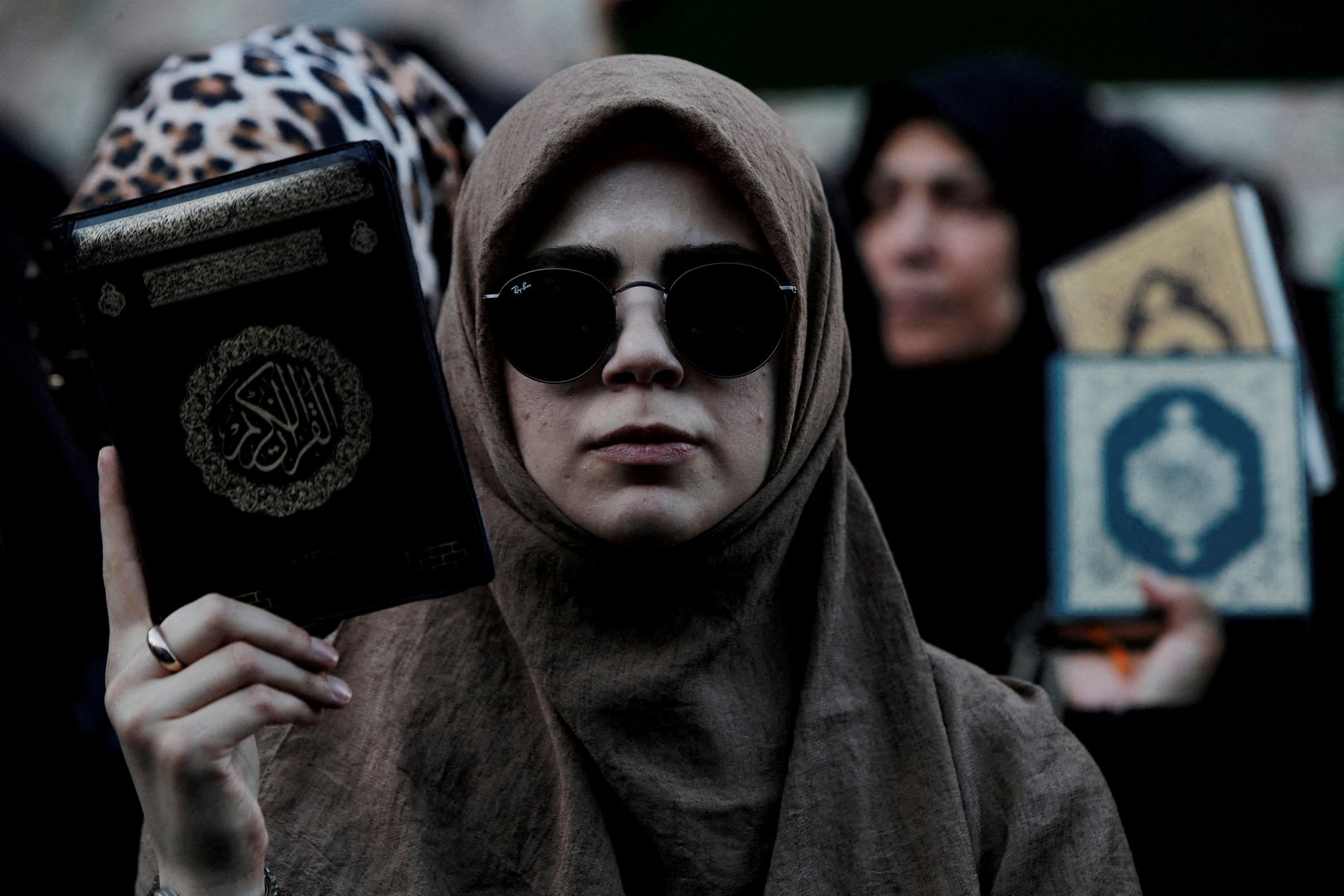Burning the holy Quran or any other holy book is a violent expression of hatred of believers by setting fire to the symbol of their faith and not a lawful exercise of freedom of expression under European law.
Setting fire to anything is inherently a violent act but when what is set ablaze is a symbol of a people such as a church or synagogue or a mosque or a holy book, the violence is directed at the destruction of people who identify with their religious symbols. And the prospect of sacrificing people on the altar of freedom of self expression fills most civilised nations with horror.
The burning of books as a violent expression of hate is associated with the Nazis in Germany who burned the books of progressive writers deemed decadent by Nazi propagandists. Ultimately book burning led the Nazis to burn a whole people too – the word holocaust derives from the Greek holokauston meaning burning the whole of something.
Nazi Germany was defeated in 1945, and its defeat ushered in a new age of human rights protection as a reaction to Nazi excesses and nowhere more comprehensively than at the UN and Europe.
There was the Universal Declaration of Human Rights adopted by the UN General Assembly in 1948, and the European Convention of Human Rights (ECHR) in 1952 and the International Covenant on Civil and Political Rights in 1966 and the European Charter of Fundamental Rights adopted by the EU in 2007.
The protection of rights in all those documents, however, was accompanied without exception by an overarching prohibition on the abuse of rights by holders of rights as a necessary concomitant. Abuse of rights is defined in international law as the harmful use of rights for a purpose plainly contrary to human rights protection, namely: the destruction of democracy or fundamental rights.
The problem is well known. Rights could be used by political parties with a totalitarian agenda to get elected and then abolish democracy. And rights such as freedom of expression could be used by groups or individuals in furtherance of violent, hateful and xenophobic aims to destroy the rights of others.
Over the years the European Court of Human Rights (ECtHR) has developed a body of law on the prohibition of abuse of rights which is relevant and topical given claims by Sweden and Denmark that the right of freedom of expression in their countries prevents them from banning the burning of the Holy Quran and other holy books.
According to the case law of the ECtHR, the prohibition of abuse of rights is an interpretive tool that prevents reliance on a human right by the holder of the right to perform acts that are violent or hateful or xenophobic or anti semitic or islamophobic with the aim of destroying the rights of those targeted.
What happened in June in Sweden after a spate of Quran burnings was a copy cat burning of the Bible and the Torah too. According to newspaper reports the police granted permission for all the burnings to take place when authorising the demonstrations to take place as if burning holy books were a normal way of expressing oneself against a particular religion. It is an absurd state of affairs.
I don’t buy the argument that it is beyond the wit of Scandinavian judges to interpret the constitutional laws protecting freedom of expression in Sweden and Denmark in a way that enables their police forces to ban the burning of holy books. They could do it on the basis that setting fire to a book is inherently a violent act of hatred against believers of the faith whose book is set ablaze.
Sweden and Denmark have their own constitutional arrangements and they contain wider protection of freedom of expression than the ECHR requires, which is perfectly within the obligation to secure convention rights but only so long as such wider protection is interpreted to prevent the performance of acts aimed at destroying the rights of others.
The constitutional protection of freedom of expression runs deep in Scandinavia, but it does not justify the inertia in failing to ban the burning of holy books. Challenging religious belief is one thing, burning its holy book is beyond offending religious sensibilities, it is encouraging violence against believers.
Desecration of holy books takes many forms and although burning is the most violent there are other ways that cause problems even when the context is artistic expression. For example there was uproar in India last month concerning a sex scene in the film Oppenheimer about the man who created the atom bomb that was highly hurtful to Hindus according to its information minister.
He complained in a tweet to the film director, Christopher Nolan, that the film makes a scathing attack on Hinduism. The film shows a woman on top of a man having sex while holding the Gita in one hand and seemingly adjusting their reproductive organs with the other while he reads aloud the words “Now I am death, the destroyer of Worlds.” It may have been how Oppenheimer felt, but the context in which the words from the Gita were quoted was very hurtful to devout Hindus the minister claimed.
Generally the ECHR is directed at states, but uniquely the prohibition of abuse of rights is directed against groups and individuals whom it prohibits from using rights with the aim of destroying the rights of others. It is the only part of the ECHR that imposes such a duty, and the police forces in Sweden and Denmark should use it to refuse to grant permission to someone intending to burn a holy book.
Alper Ali Riza is a king’s counsel in the UK and a retired part time judge







Click here to change your cookie preferences